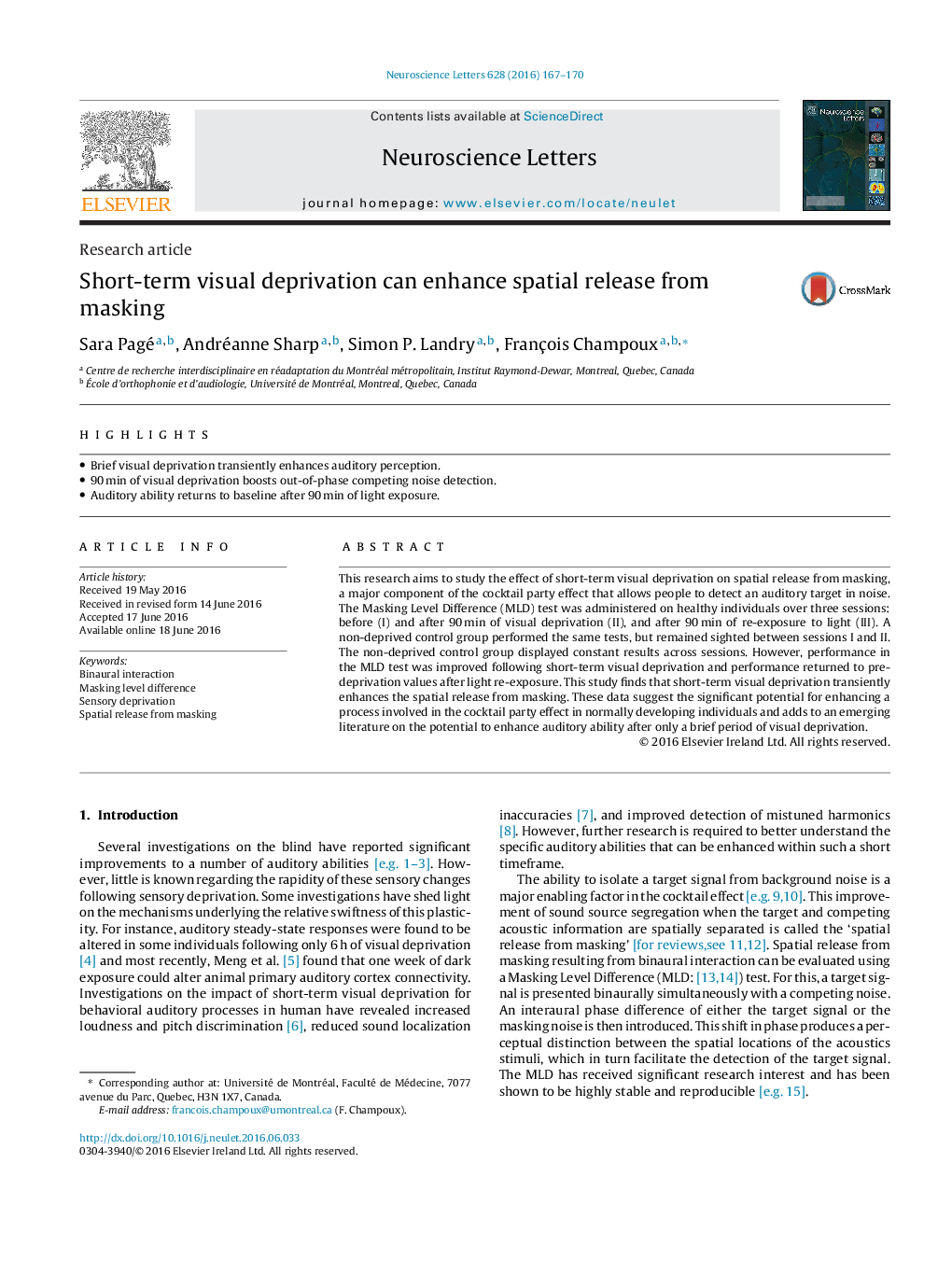| Article ID | Journal | Published Year | Pages | File Type |
|---|---|---|---|---|
| 6279398 | Neuroscience Letters | 2016 | 4 Pages |
â¢Brief visual deprivation transiently enhances auditory perception.â¢90 min of visual deprivation boosts out-of-phase competing noise detection.â¢Auditory ability returns to baseline after 90 min of light exposure.
This research aims to study the effect of short-term visual deprivation on spatial release from masking, a major component of the cocktail party effect that allows people to detect an auditory target in noise. The Masking Level Difference (MLD) test was administered on healthy individuals over three sessions: before (I) and after 90Â min of visual deprivation (II), and after 90Â min of re-exposure to light (III). A non-deprived control group performed the same tests, but remained sighted between sessions I and II. The non-deprived control group displayed constant results across sessions. However, performance in the MLD test was improved following short-term visual deprivation and performance returned to pre-deprivation values after light re-exposure. This study finds that short-term visual deprivation transiently enhances the spatial release from masking. These data suggest the significant potential for enhancing a process involved in the cocktail party effect in normally developing individuals and adds to an emerging literature on the potential to enhance auditory ability after only a brief period of visual deprivation.
